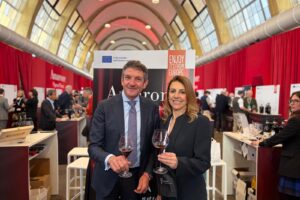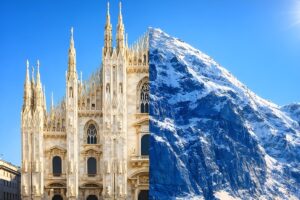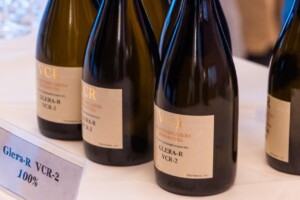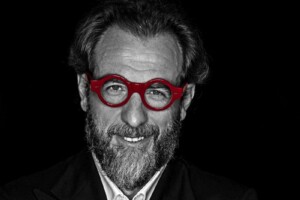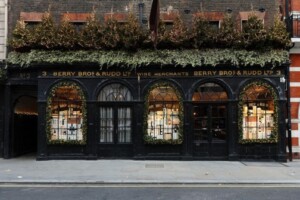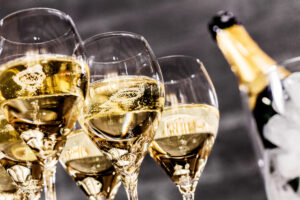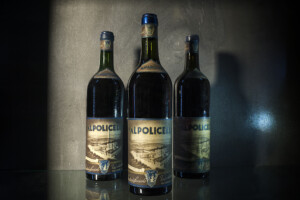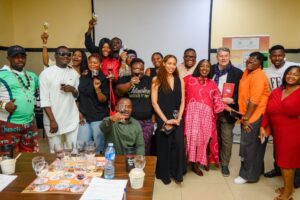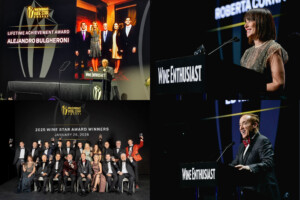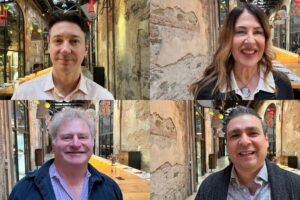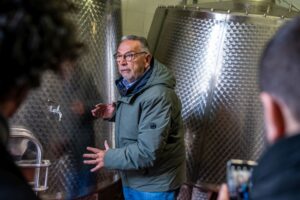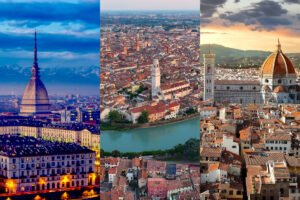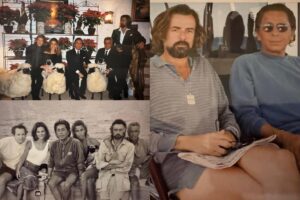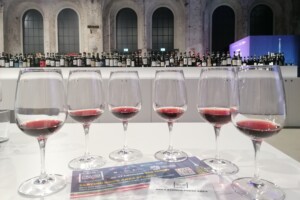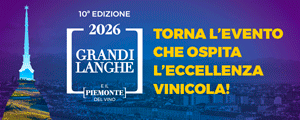Behind a wine, there are research and experimentation, tests, vineyard and winery tests, which create a virtuous circle to make excellent products from any point of view, from the organoleptic one, to those of safety and environmental sustainability. A reality which is unknown to most people, which “hides” behind the label, and which, at least to enthusiast consumers, should be narrated in an easy and educational way, based not on suggestion, but on the communication of the fascinating vine physiology, and winemaking biochemistry. A particularly important aim to break the antithesis that many see between innovation and tradition. A theme which has been discussed since ancient times: Lucio Anneo Seneca, between 62 and 65 AD, in “Moral Letters to Lucilius” wrote: “nature gave us the seeds of knowledge, not the knowledge itself”. Narration towards consumer is too often oriented to convince him/her that quality arises by doing the least possible in vineyard and winery ignoring the essential role of knowledge. Knowledge which is appreciated in all fields, which, for any mysterious reasons, in the disclosure of wine, struggles to be recognized so that the application of science, and the implementation of advanced systems are often demonized. Reflection at the center of meeting-tasting “I vini della conoscenza” - “The wines of knowledge”, organized by Onav - Organizzazione Nazionale Assaggiatori Vino – National Organization Wine Tasters, in collaboration with Enoforum, in edition No. 25 of the international conference dedicated to viticulture, for the first time, in the last days, in Verona, at Veronafiere.
A particular format which explained - from theory to glass – what Gianni Trioli, president of Vinidea, Enoforum organizing society, represented as a supply chain which starts from universities and research associations, passes through companies transforming scientific results into production tools to transfer innovation into practice to “pioneer” producers testing and adopting it to produce their wines. Last, but not for importance, the role of those organizations which act as bridge towards operators and wine lovers such as Onav, which - as recalled by its director Francesco Iacono, moderator of the meeting - “makes didactic at high technical levels for those interested, at a professional level, in wine and enthusiasts. The consumer, who wants to get closer to wine world - explained Iacono to WineNews - asks for major details in knowledge. He is not satisfied to understand if wine is good or not anymore, as it happened 20-30 years ago. Today, he asks to know because wine is more or less perfumed or structured, what are the reasons, there are more curiosity, knowledge demand”.
Good news, a trust injection for the overcoming of the antithesis between scientific and non conventional approach refuted during the meeting in Verona. Mario Pojer, polyhedral and genial producer from Trentino, “demolished” it first, who, during his life with member Fiorentino Sandri, constantly innovated by studying deeply tradition up to propose not only wines that, defining them new, is limiting, but also patents of wine machines. A path which started 50 years ago, after diploma, with only 2 hectares of Schiava in Faedo (Trento), “the bad luck not to be in Piedmont, much fantasy and willingness to travel to know and make two harvests a year”, explained Pojer. And, then, vision and anticipation of trends. Resistant Piwi vineyards – planted 4 years in advance in 2009 when they were not allowed, with the “alibi” of distillation – which “brought to the realization of the dream to make a wine without chemistry, neither in vineyard, nor in winery. A wine beyond organic, arisen thanks to the recovery of the tradition of wines “with depth”, in those years almost forgotten, reinterpreted in the form of wine with innovative tools”. The first vintage was 2013, “ZERO infinito” - name suggested by Francesco Arrigoni, journalist of “Corriere della Sera”, who passed away early, and who also sketched the label – it is a refermented wine in bottle according to “ancestral method”, which had a great success in recent years. “At the time - recalled Pojer – there were few people to know this method used in the past. For this reason, we went to talk with 90 year old people in the historical area of Prosecco to deepen the production of Lambrusco di Sorbara, to recover some techniques implemented for the production of Moscato d’Asti. Therefore, we set up a ad hoc process, rooted in tradition, and reviewed implementing new technologies, and we managed to produce a wine starting from a resistant variety which gave us, and continues to give us many satisfactions, particularly in Japan, and other Eastern countries”. In the end, Pojer underlined how, without knowledge, it is impossible to get wines “with depths” with a satisfying quality.
Another example of wine which reached excellence quality levels thanks to modern analytical techniques, put at the disposal by building companies of analysis tools, is Freisa. “Knowledge and quantification of different anthocyans dislocated in peel and grape seeds of Freisa - explained Luca Rolle, professor of Winemaking at the University of Turin – allowed to avoid color oxidations to which this variety is subjected. The knowledge of tannic profile, and the possibility to separate and taste the molecules singularly allowed to avoid the extraction of bitter, due to smallest molecules contained in grapeseeds. Therefore, in collaboration with company Balbiano, it was possible to set up a protocol of winemaking to get a balanced Freisa di Chieri”. “Freisa is a paradigmatic vineyard that can be got through research - underlined Luca Balbiano, third generation heading family winery - only lively and recently still wines, but not sharpening wines were got. With the reimplantation of vineyard Villa della Regina, sixth century Savoy residence, with which e dealt, and thanks to the experimentation with the University of Turin, we arrived in 2009 to produce a Freisa characterized by a long sharpening, great elegance, and complexity, high in cement”, characteristics confirmed by Freisa di Chieri Doc Superiore “Vigna Villa della Regina” 2018 in the glass.
Regarding innovation, research which “indirectly” make wine quality are not least. In the case of research and development of technologies for the reimplementation of refluent waters of winery in which the University of Catania and company Al-Cantàra were committed in, the focus is on sustainability. “The implementation in the winery is very high - explained Salvatore Rizzuto, enologist of Etnean company - we evaluated an average consumption of 10 liters to produce a liter of wine. And, it is about polluting water which is not possible to clean with traditional treatment systems. This starting point of research of new technologies of depuration and reuse, such as filtering systems, and advanced oxidation processes for the recycle of refluent waters, which allowed us to reduce the ecologic footprint of vineyard winemaking, to save the costs of treatment, and disposal, and also to produce as subproducts of natural fertilizers”. Water consumption also for the production of rosé wine by Nerello Mascalese Amuri di Fimmina and Amuri di Matri Etna Doc were reduced to 4 liters per wine liter. Different histories, from different places, arisen by different ideas and needs, but with a unique common denominator: the research of knowledge to sharpen wine, from the vineyard to the glass.
Copyright © 2000/2026
Contatti: info@winenews.it
Seguici anche su Twitter: @WineNewsIt
Seguici anche su Facebook: @winenewsit
Questo articolo è tratto dall'archivio di WineNews - Tutti i diritti riservati - Copyright © 2000/2026











